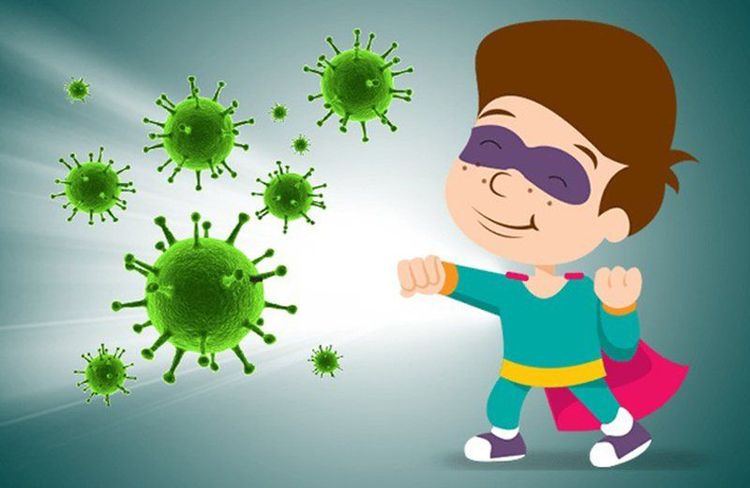This is an automatically translated article.
Supplementing with vitamins and minerals is the most effective way to boost immunity. In particular, selenium is a trace mineral that plays a very important role in the body's resistance. Therefore, selenium supplementation is an effective measure to strengthen the immune system.
1. The role of selenium in strengthening the immune system
A varied diet, full of nutrients as well as a balance between macro and micro elements is the most effective way to strengthen immunity. In which, Selenium is a trace element that plays an important role.
Selenium (Selenium) is a very necessary micronutrient for the body, especially in children. Selenium is a structural component of more than 20 selenoproteins, which play an important role in DNA synthesis, thyroid hormone metabolism, and reproduction. In particular, Selenium plays an indispensable role in the enzymes Glutathione Peroxidase (GPx) and Thioredoxin reductase - the most important antioxidant enzymes. In particular, Selenium strengthens the immune system and protects the body from infectious agents, avoiding damage caused by oxidation.
Selenium affects all components of the immune system, especially the formation, development and functioning of white blood cells. Selenium stimulates cellular immunity, helping to protect immune cells such as neutrophils, lymphocytes, and macrophages. At the same time, selenium also enhances humoral immunity and participates in the structure of antibodies - called immunoglobulins (IgA, IgM, IgG) - that help the body destroy pathogens. In addition, selenium activates several other enzymes in the immune system, restores genetic structure, and detoxifies heavy metals.
Selenium is a very good antioxidant and immune-boosting micronutrient. When the body is fully supplemented with selenium, the immune system will work effectively, enhance its ability to fight infections, and prevent the invasion of pathogens such as bacteria and viruses. In contrast, selenium deficiency will result in impaired immune function, reduced white blood cell and thymus function, so the resistance to infection is very poor. This leads to children being susceptible to infections, especially respiratory infections such as pharyngitis, otitis media, bronchitis, pneumonia,... and intestinal infections. Selenium is involved in the formation of the enzyme iodothyronine deiodinase, which is required for iodine metabolism and thyroid hormone synthesis. Thyroid hormone plays a very important role in energy metabolism, necessary for the body's growth and development, both physically and intellectually.

Selen tăng cường hệ miễn dịch và bảo vệ cơ thể trẻ khỏi các tác nhân nhiễm trùng
2. How to supplement selenium to help strengthen immunity
Selenium is known as the golden micronutrient for children's immune system, but lack of selenium has received little attention. The World Health Organization (WHO) recommends that children need selenium as follows:
For children under 6 months of age: the need for selenium is 6 mcg/day. For children 7-12 months old: Selenium requirement is 10 mcg/day. For children 1 - 3 years old: Selenium requirement is 17 mcg/day For children 4 - 9 years old: Selenium requirement is about 20 mcg/day day and 32 mcg/day in men. Although selenium strengthens the immune system and is essential for growth, the body cannot synthesize it, it needs to be supplemented with selenium from outside through food and supplements in the form of nuggets or syrup.
Foods containing a lot of Selenium such as:
In animals: Selenium content is abundant in fish (mackerel, tuna, salmon, anchovies, herring, snapper, sardines), shrimp, crabs, oysters, scallops, beef, pork... Especially, viscera such as kidney, liver supplemented with the most selenium from 0.4 mcg/g to 1.5 mcg/g. Fish and seafood are also rich in selenium (20.8 - 40.5 mcg/100 grams). Next comes egg yolks and meat (from 0.1 mcg/g to 0.4 mcg/g). In plants: Selenium is found in beans, whole grains, spinach, broccoli, cabbage, mushrooms, seaweed, garlic, apples, etc. In particular, germinated green beans are rich in easily steamed selenium. collect. Breast milk, cow's milk Supplements in the form of nuggets or syrups containing synthetic selenium will provide the child with the required amount of selenium. However, before using for children, parents should consult a doctor. Selenium deficiency can cause dangerous complications in children's health and well-being, so parents need to observe and timely supplement this important source of this vitamin.
In addition to dietary supplements, parents can give their children supportive foods containing selenium and essential micro-minerals such as zinc, lysine, chromium, selenium, ... to help fully meet their needs. nutritional requirements in children. At the same time, these essential vitamins also support digestion, enhance nutrient absorption, help improve anorexia, and help children eat well.
Please regularly visit Vinmec.com website and update useful information to take care of your baby and family.













